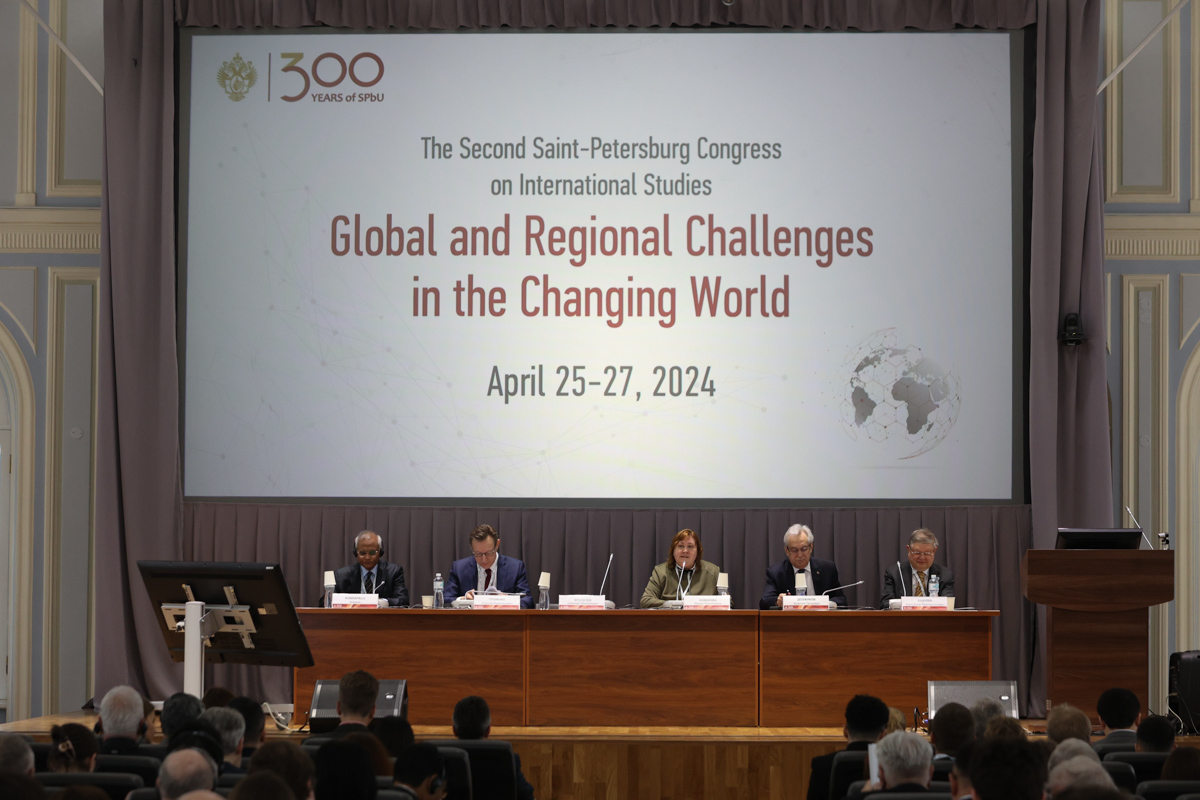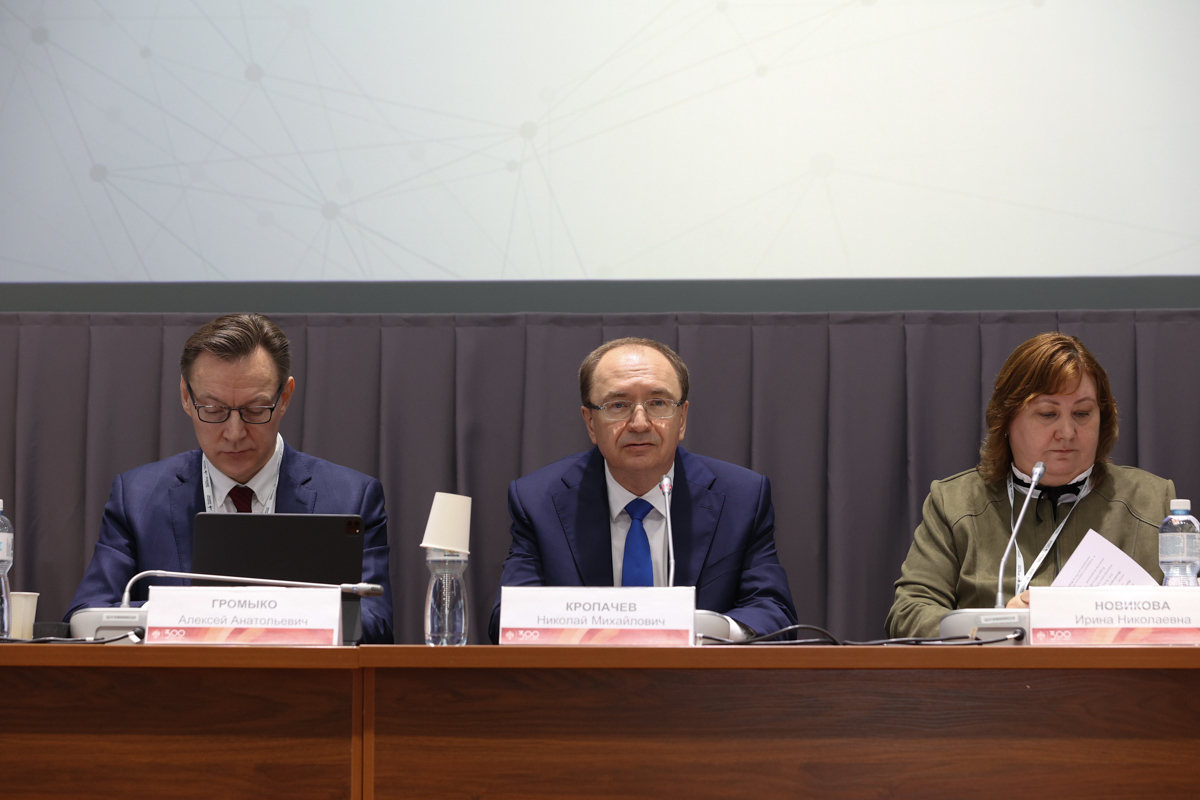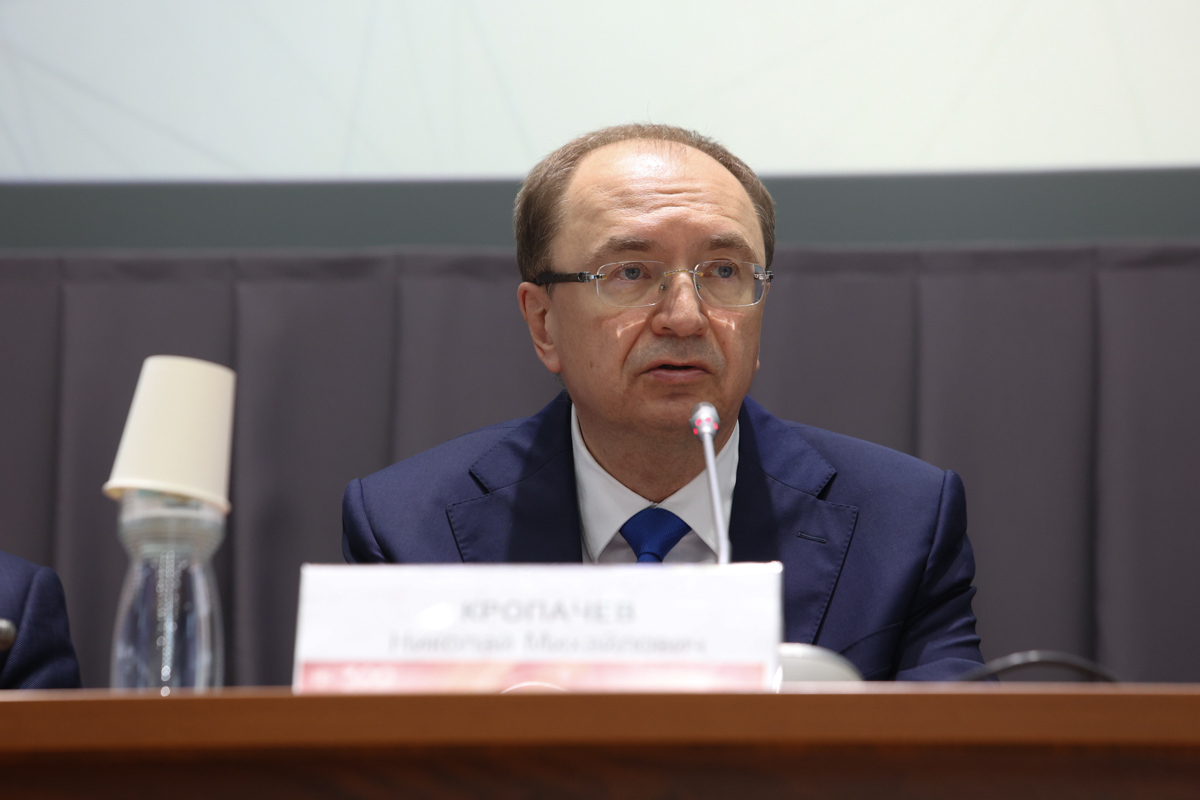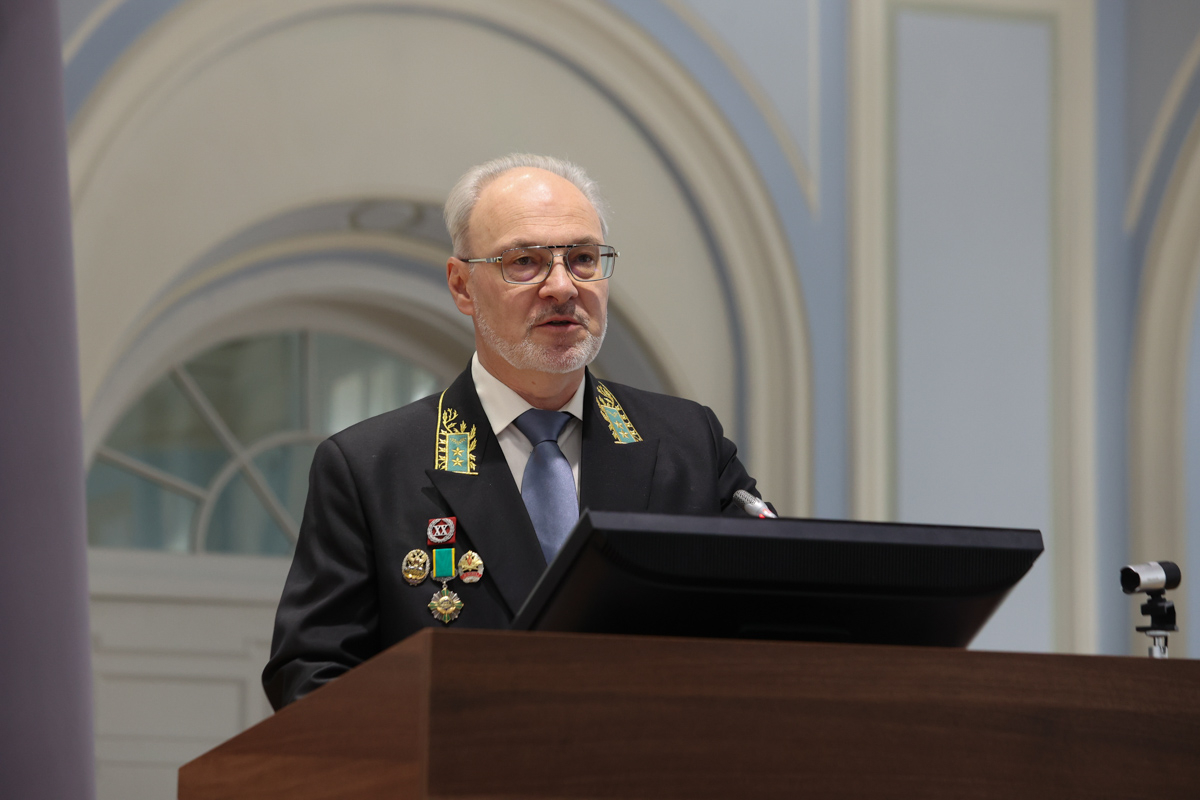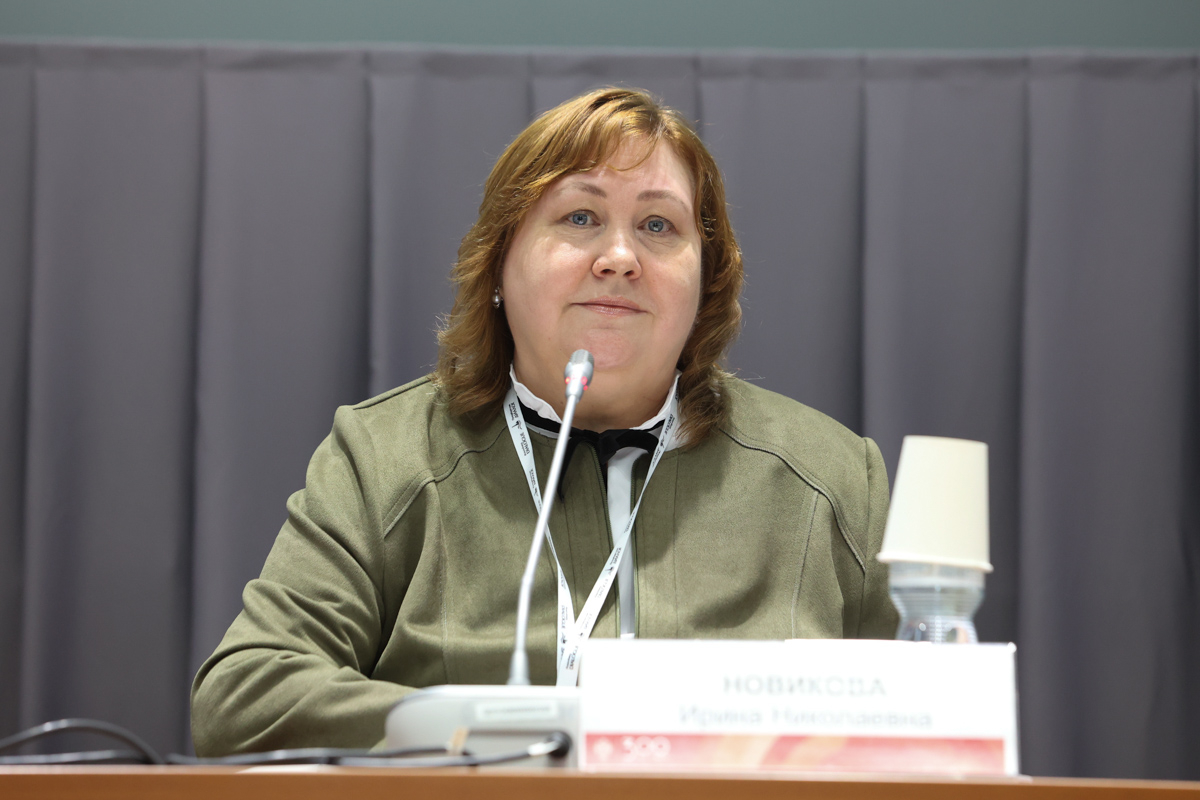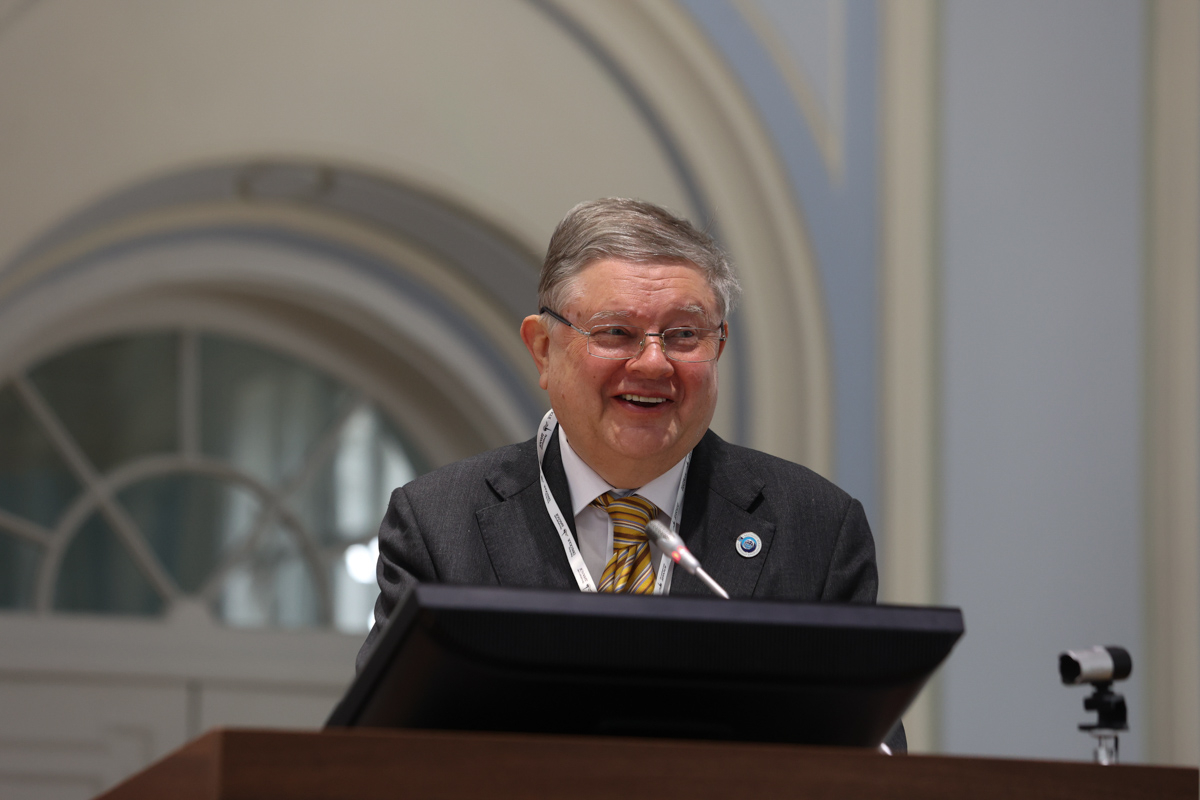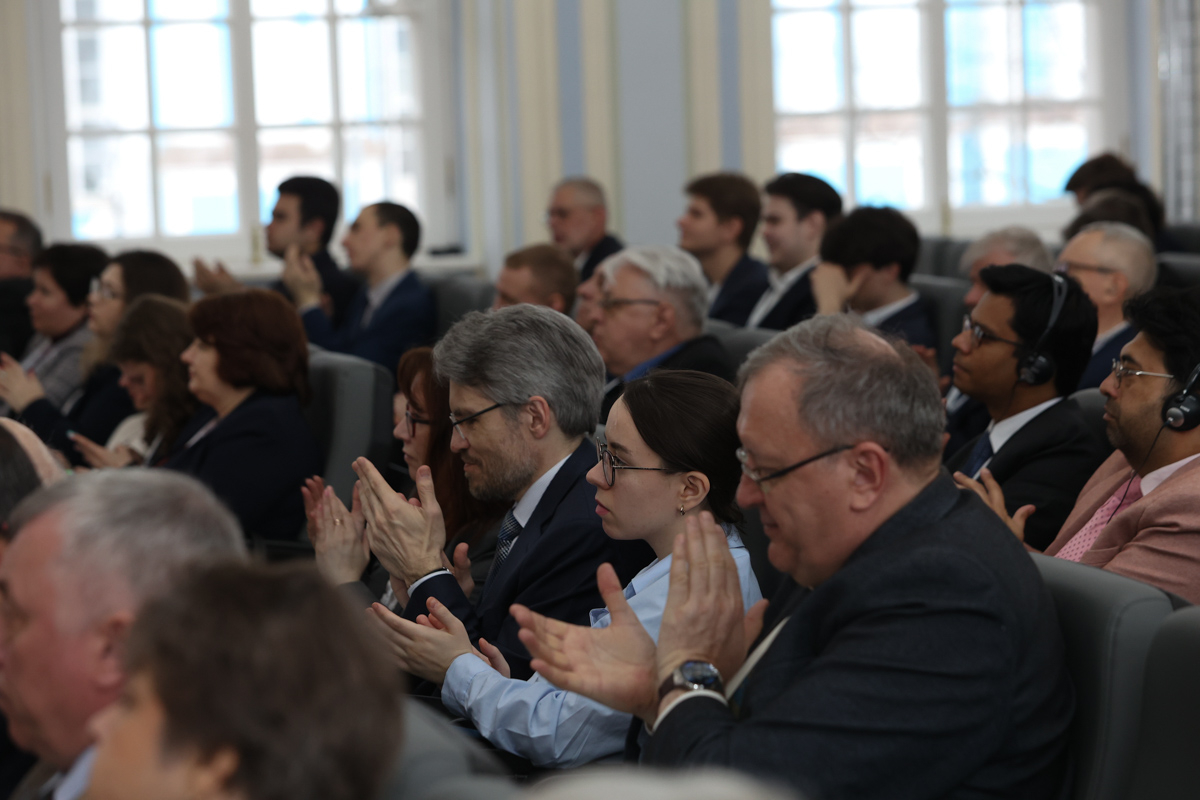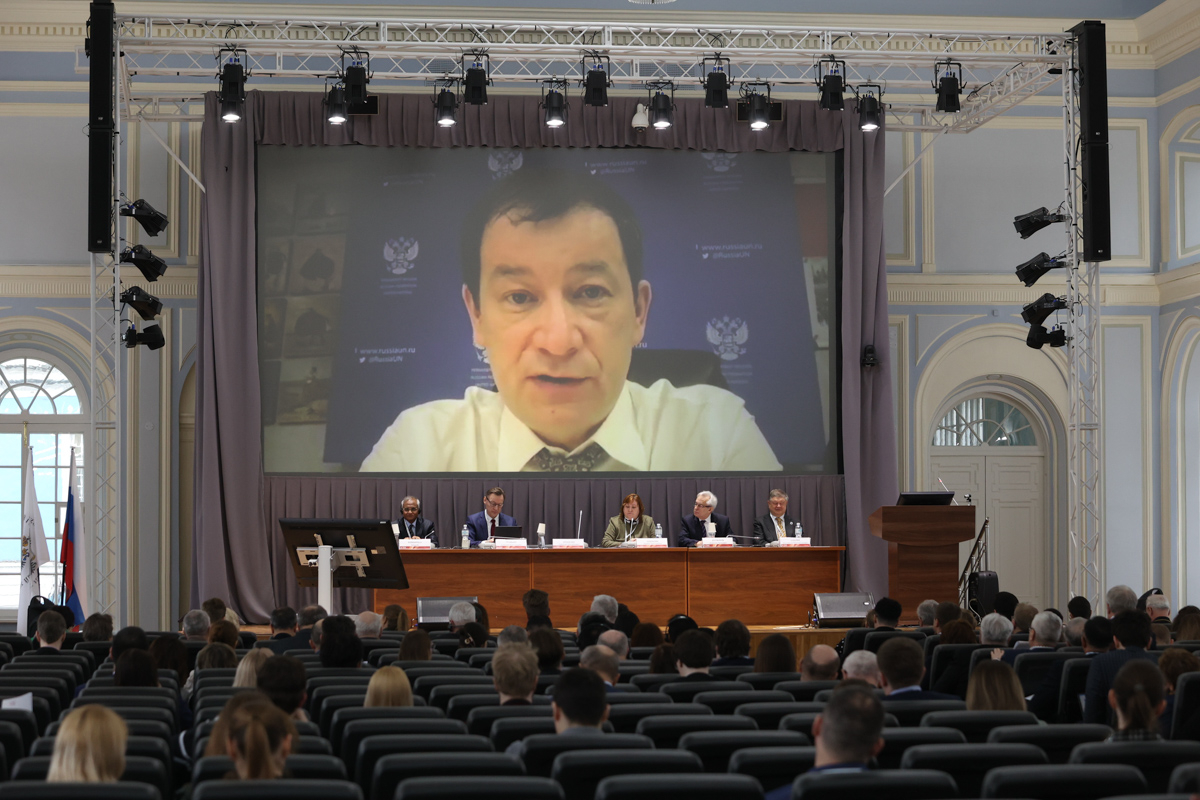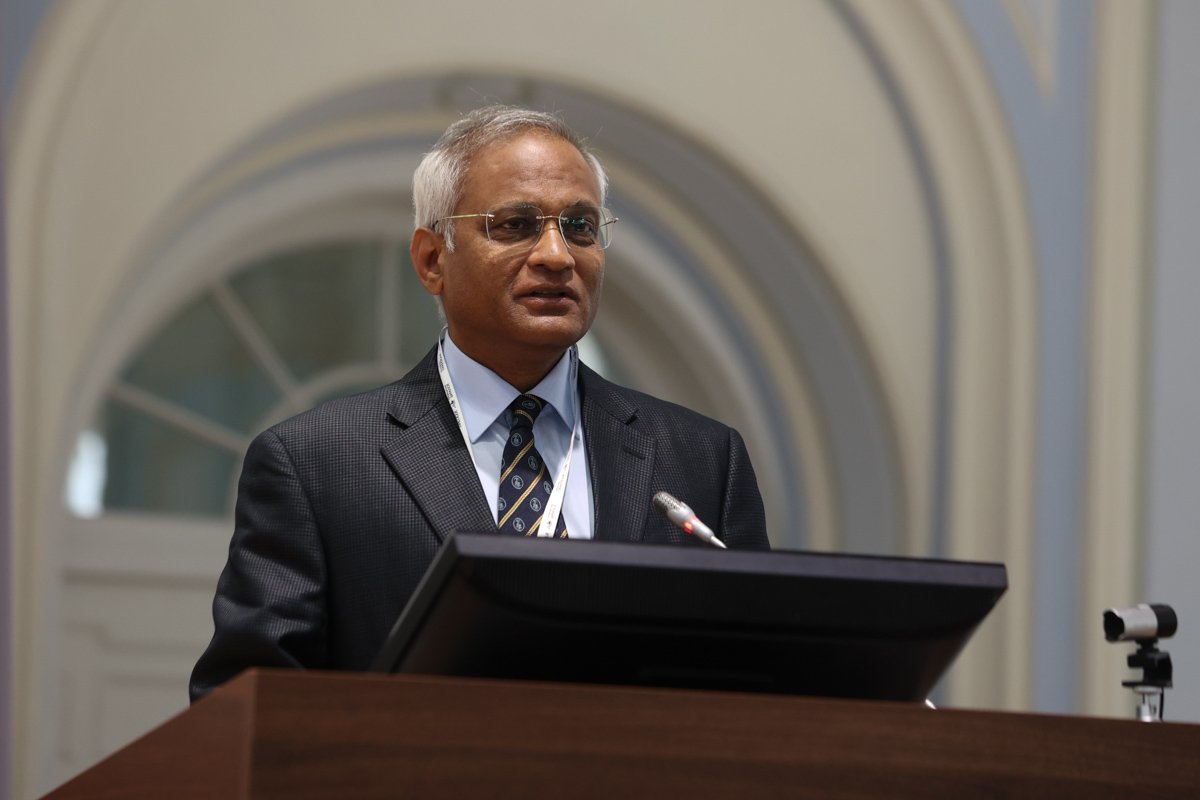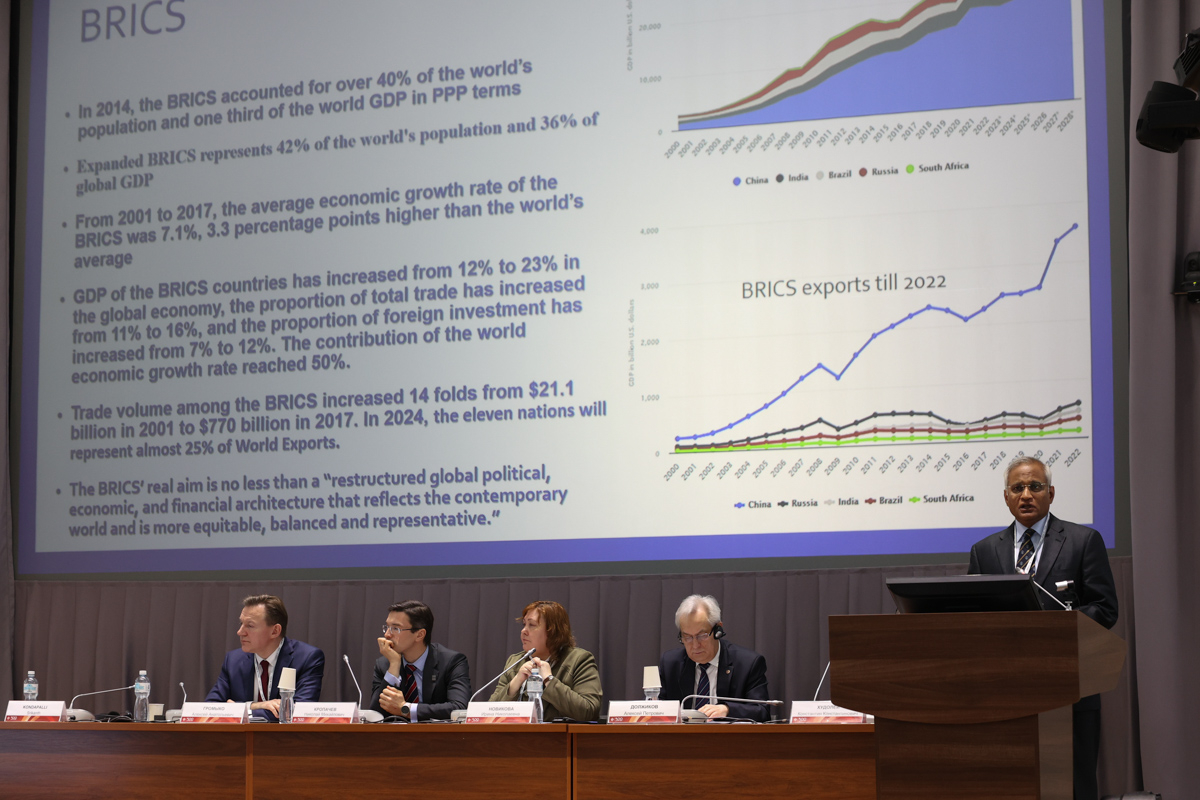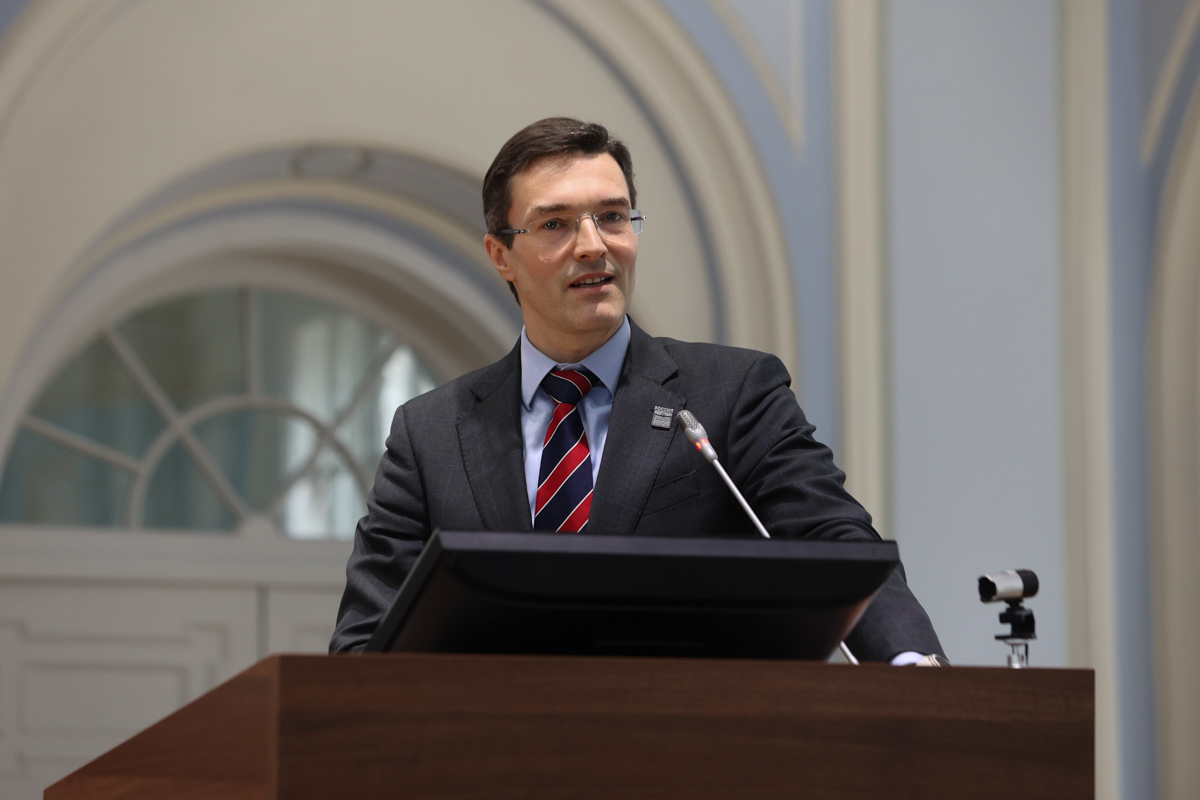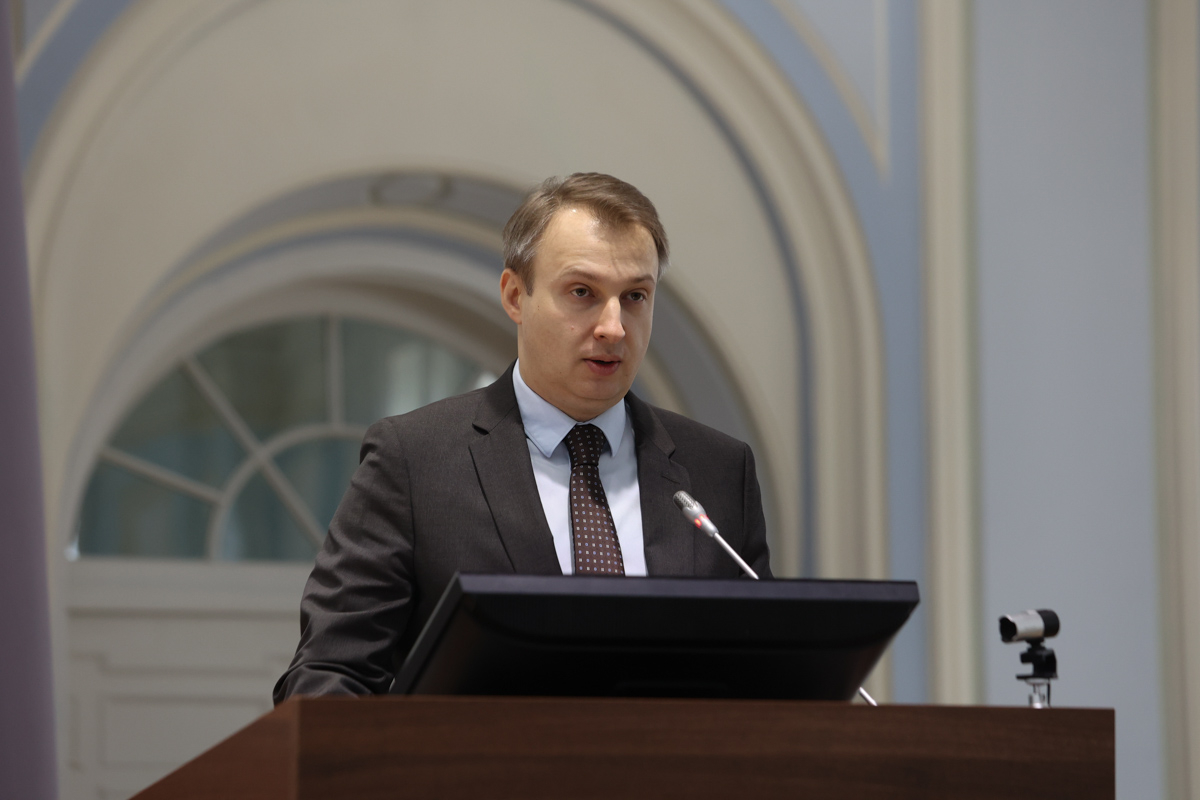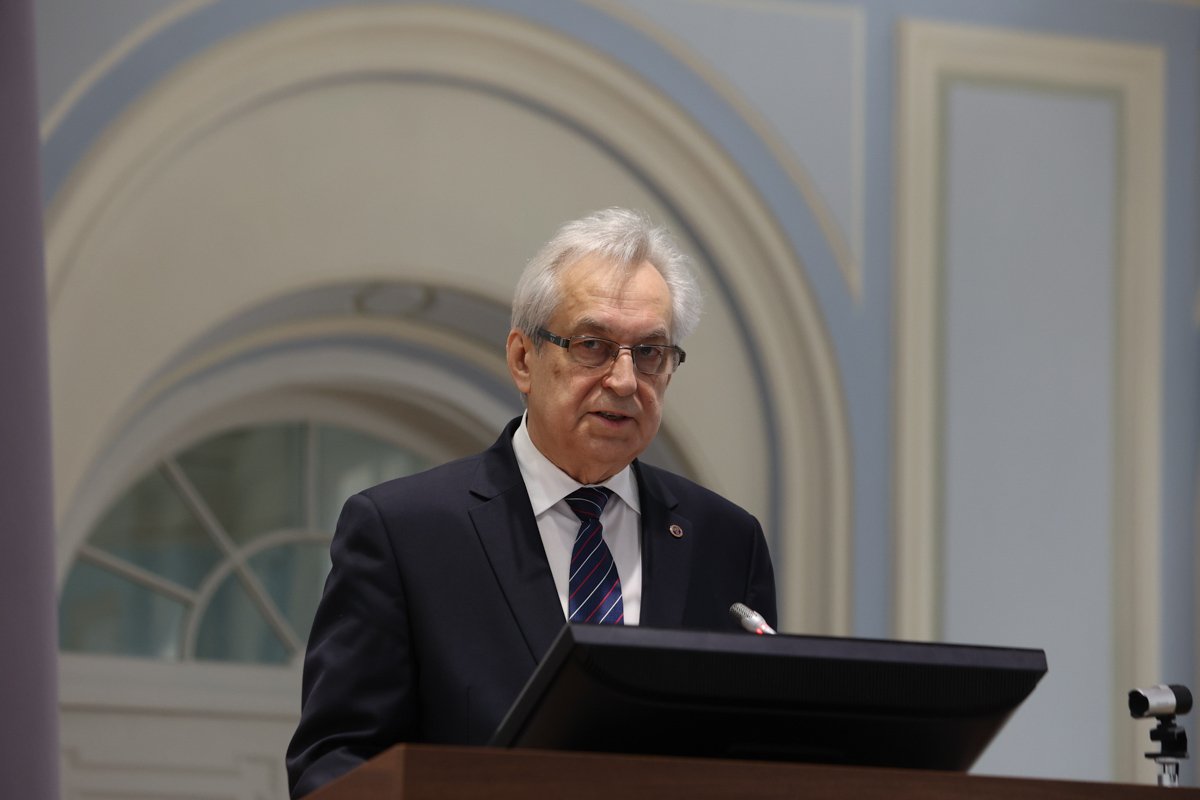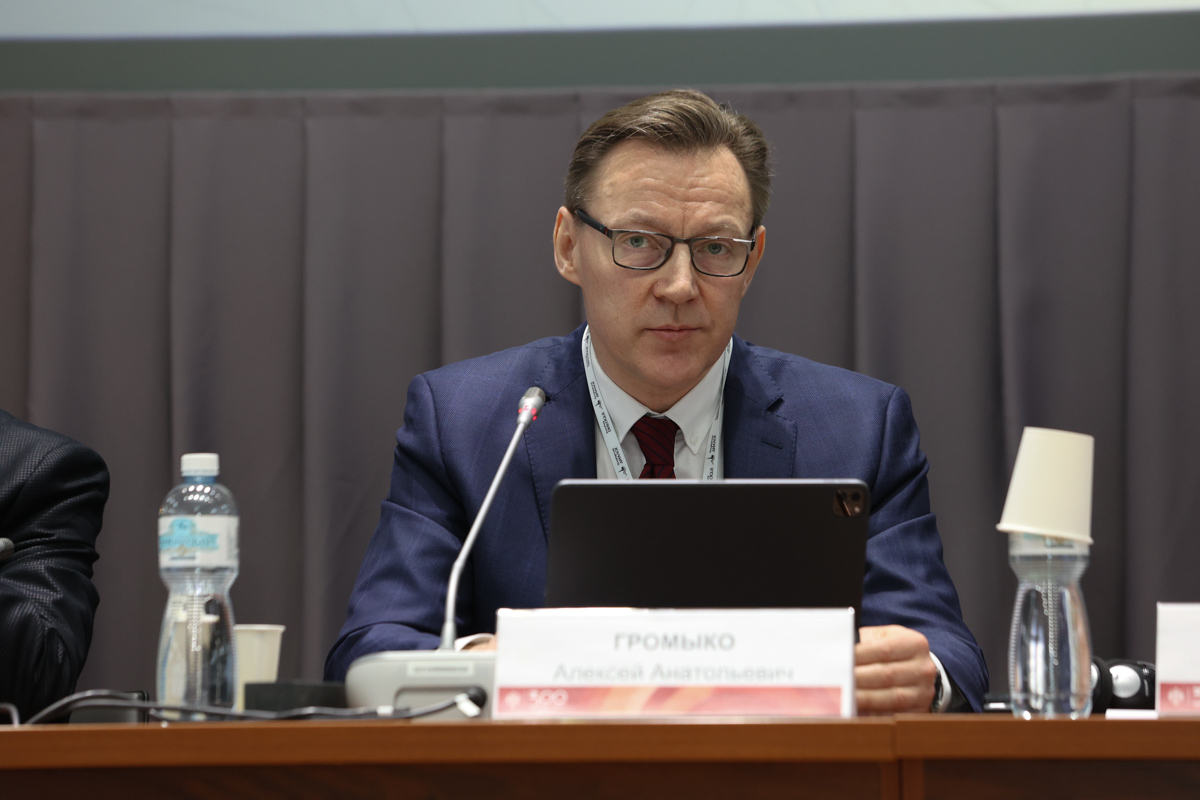More than 1,100 participants from 26 countries at the 2nd St Petersburg Congress on International Studies
The congress primarily focuses on the global and regional challenges in the changing world. It is set to mark the 300th anniversary of St Petersburg University and the 30th anniversary of the School of International Relations at St Petersburg University. Experts in the field of international relations discussed how the world political system is changing and how to solve the current disputes.
St Petersburg University offers 91 academic programmes with a Chinese component. Most of them provide an in-depth study of the Chinese language.
During the plenary session, Nikolay Kropachev, Rector of St Petersburg University, Corresponding Member of the Russian Academy of Sciences, made the report ‘On the international activities of St Petersburg University’. The congress is being held in the year of celebrating the 300th anniversary of the oldest university in Russia, which foundation was a turning point in the history of national education, said Nikolay Kropachev. Throughout its history, St Petersburg University has been a renowned centre of excellence in science and culture, cherishing the best traditions of Russia’s higher education and its high academic reputation, and striving to grow and develop.
The Rector of St Petersburg University highlighted the constantly growing interest among international students in St Petersburg University. "For six years in a row, St Petersburg University has been the most popular university in Russia among foreign citizens. In recent years, the competition has been more than 21 applications per place. The number of those who apply to study in academic programmes on a fee-paying basis is also growing steadily," said Nikolay Kropachev.
Last year, more than 21,000 applicants from 120 countries submitted their applications to study on a government-funded basis at St Petersburg University.
Nikolay Kropachev, Rector of St Petersburg University, Corresponding Member of the Russian Academy of Sciences
Despite the current geopolitical situation, the geography of the University’s contacts in the international sphere is expanding, said Nikolay Kropachev. "Despite the political events, St Petersburg University’s representative offices in Italy, Spain, the Republic of Korea, China, Greece, Iran, Türkiye, and Uzbekistan are actively operating. They regularly hold events, each of them arouses significant interest and attracts many guests," said the Rector of St Petersburg University. He also reported on the increase in the number of lecturers from foreign countries, new academic programmes with a foreign component, and the preservation of the teaching of all 120 foreign languages at St Petersburg University.
The Rector of St Petersburg University spoke about the development of international online education. "St Petersburg University is the only Russia’s university that is a co-founder of the Massive Open Online Courses and the first Russia’s educational institution to enter into an agreement with the largest Chinese national online educational platform XuetangX," said Nikolay Kropachev.
Today, St Petersburg University is a leader in the field of Russia’s online education.
Nikolay Kropachev, Rector of St Petersburg University, Corresponding Member of the Russian Academy of Sciences
Professor Irina Novikova, Dean of the School of International Relations at St Petersburg University, delivered a welcoming speech at the opening of the congress. "The participants in the first congress spoke in favour of holding the congress on a regular basis. After a year and a half, we brought this idea to life. The beautiful dates of 300th anniversary and 30th anniversary are a sound reason to celebrate a double anniversary and invite colleagues, graduates and partners," said Irina Novikova. Among the primary goals of the congress is to attract early-career researchers to the dialogue in the field of international relations, she said.
Professor Konstantin Khudoley, the first Dean of the School of International Relations at St Petersburg University, spoke about the history of the School of International Relations at St Petersburg University, the significant milestones of its history, challenges and achievements. "In the early 1990s, one of the most considerable changes in the life of our country was the huge expansion of international relations. The increase in the volume of work meant that we had to prepare a significantly larger number of high-calibre specialists in international relations. This is when the University came up with an idea to open the School of International Relations," said Konstantin Khudoley.
On 28 March 1994, the Academic Council of St Petersburg University decided to open the School of International Relations.
Since its foundation, the School of International Relations at St Petersburg University has been following its own unique path, said Professor Khudoley. "When developing the concept for the School of International Relations, we carefully examined the experience of MGIMO, which was the only Russia’s university that prepared specialists in international relations. We also studied the experience of foreign universities. Yet, having carried out extensive research on this topic, we came to a conclusion that we needed to develop our own, unique model. Today, the school is one of the renowned leaders in fundamental research and education in the field of international relations," said Konstantin Khudoley.
At the meeting, the School of International Relations at St Petersburg University received congratulations on its 30th anniversary and the opening of the congress. The congratulations were on behalf of Vladimir Titov, Senior Deputy Minister of Foreign Affairs of the Russian Federation; Dmitriy Kobitskiy, Secretary General — Head of the Secretariat of the Council of the Interparliamentary Assembly of Member Nations of the Commonwealth of Independent States; and Evgeny Grigoriev, a member of the Government of St Petersburg — Chairman of the Committee for External Relations of St Petersburg. Dmitry Polyansky, First Deputy Permanent Representative of the Russian Federation to the UN, also sent his video message to the participants.
St Petersburg University is a co-founder of the national platform "Open Education". Four million students take online courses from St Petersburg University.
Alexey Gromyko, Corresponding Member of the Russian Academy of Sciences, Director of the Institute of Europe of the Russian Academy of Sciences, delivered the report ‘World reassembly. Decline of Europe 2.0?’. He discussed the periodicity of history, following the German publicist Oswald Spengler. "The decline of classical European culture, as Spengler understood it, has already happened, apparently, more than once. As for European civilisation, it will continue to exist, unless it destroys itself," said Alexey Gromyko.
Foreign experts also took part in the plenary session of the congress. Professor Srikanth Kondapalli, Dean of the School of International Studies at Jawaharlal Nehru University (India), spoke about the prospects for BRICS expansion. He highlighted a significant potential of the organisation that is based on the solid economic foundation and shares common goals of the participating countries to form a multipolar concept of the world.
The St Petersburg Congress on International Studies is an interdisciplinary platform where representatives of various scientific fields can present their reports. This was confirmed by the participation in the plenum of Professor Sergei Belov, Dean of the Faculty of Law at St Petersburg University. The existing model of global investment is in deep crisis, largely due to the imperfection of the institutions of international investment arbitration, he said. "Several years ago, St Petersburg University took an initiative to open a fundamentally new investment institute with delocalised architecture on the BRICS platform. This platform is the most effective field to look for a new form of resolving controversial disputes that will be more universal and acceptable for the states around the world," said Sergei Belov.
During three days, the 2nd St Petersburg Congress on International Studies offered a wide range of open lectures, round tables and thematic sections. In the format of an open professional dialogue, representatives of the academic community and expert institutions in the field of international relations discussed the key fundamental theoretical and most promising practical developments in the field of international relations, aimed at overcoming crisis phenomena in global development.


